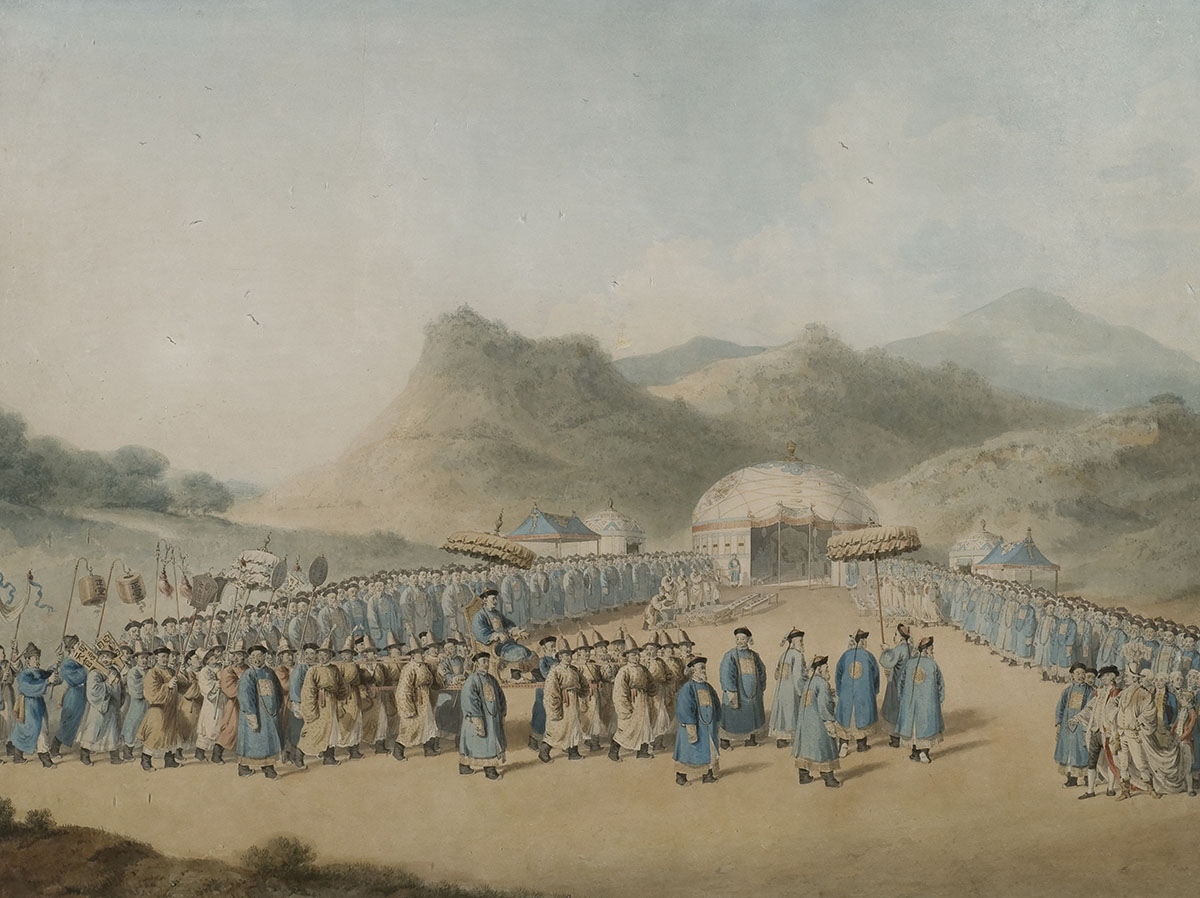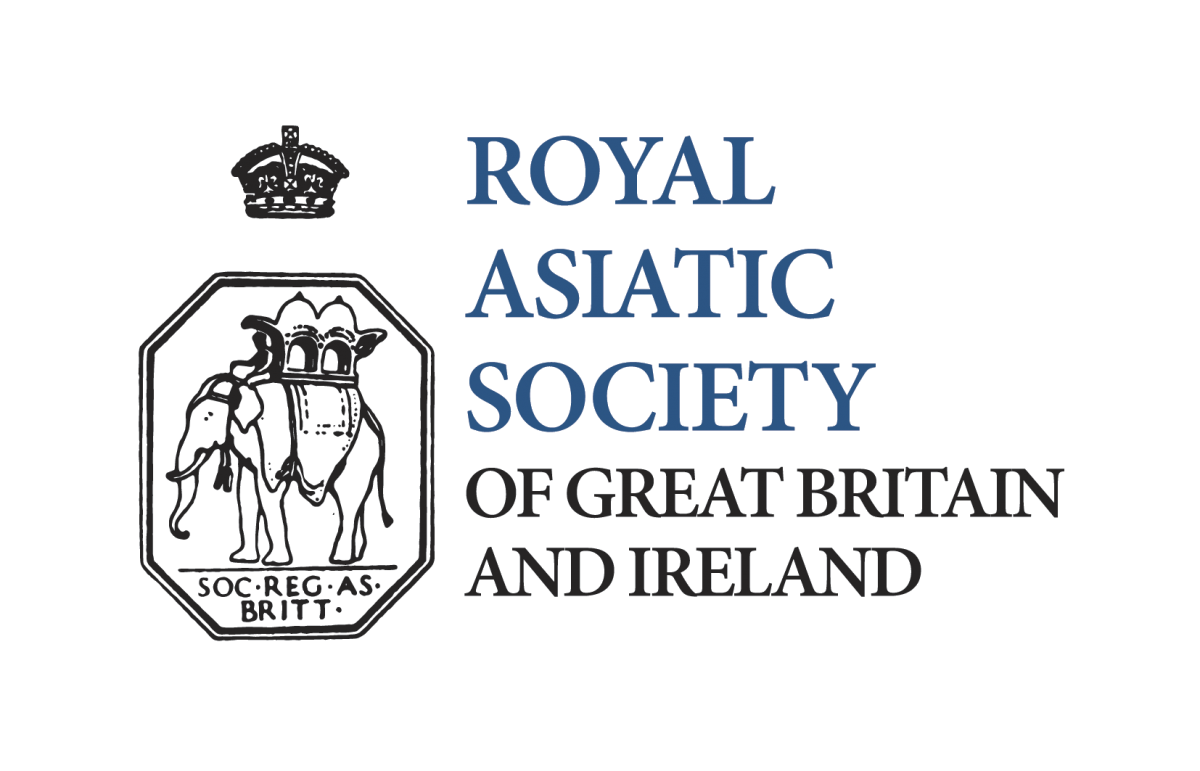British Legal Disputes and Literary Connections in 1800s Canton
Last week, Monday 27 July, The Times publicized some new research at The National Archives. This relates to an 1810 incident in Canton (Guangzhou) when British sailors were implicated in the killing of a Chinese shoemaker; and Francis William Austen, the brother of novelist Jane Austen, was in charge on the British side of efforts to reach a resolution (here, paywall). The research is described more fully in a blog post on The National Archives website (here), which notes:
On 23 January 1810, a gang of three sailors was involved in a fight with some locals in Canton, where one Chinese man was killed. The Chinese authorities claimed that they had come from a British Naval ship and insisted the men be handed over for punishment before they would give permission for the East India fleet, with its rich cargo, to sail before the monsoon arrived. The man charged with investigating the murder, rescuing the fleet in time to sail safely and with preserving Anglo-Chinese trade relations, was Francis William Austen.
Resolving such disputes in the early 1800s was far from straightforward, due to the difficulty of establishing a basis for legal proceedings that satisfied both British and Chinese authorities. Legal process remained something of a grey area despite the fact that an enormous volume of legitimate trade (excluding the illegal trade in opium) was conducted between Britain and China, all of which, in 1810, took place through the port of Canton. At that time, British trade was conducted under the monopoly of the East India Company, and the Company’s representatives were stationed in a small parcel of land outside the city, near the docks, for six months each year. Aside from occasional diplomatic Embassies, sent by Britain in 1792-3 and 1816, there were no direct relations between the British and Chinese governments. It took six months (each way) for letters to travel between Canton and London, and so, for the most part, it was up to local Company officials to try and resolve disputes using their own judgement. As the National Archives blog post observes, “Reading Captain Austen’s letters about this to the Admiralty makes it clear just how much responsibility, not only for naval matters but for diplomacy and trade, was given to British Naval Captains.”

The Napoleonic Wars led to increased Royal Navy presence in South East Asia, to protect British shipping and to strike against the colonial possessions of the Netherlands and Portugal, both of which had been conquered by France. This meant that, alongside Company officials, Royal Navy officers were also more likely to become embroiled in legal disputes with the local authorities, if (as with Francis Austen in 1810) men under their command were implicated in crimes. Although serious crimes were relatively rare, drunken brawling was not, and British sailors earned a reputation for getting drunk and starting fights when they had free time on shore. This could have tragic consequences, and such behaviour was frowned upon even then. But the life of a common sailor in the Napoleonic era could be nasty, brutish, and short. Sailing to China via India from England could take six months or longer and, for the working seaman, it was a physically arduous and dangerous journey. Merchant sailors were also at risk of “impressment” (involuntary recruitment) to the Royal Navy during the Napoleonic Wars, to support the British war effort.
The 1810 incident has a number of parallels with an episode in 1807, recorded in the Society’s own collections, when a mass brawl involving British sailors led to the death of a Chinese man. As in 1810, the local authorities demanded that the culprit be handed over; but (also just like 1810) it was far from clear to the British who was actually responsible. The process of identifying the culprit was made more difficult because legal restrictions made it impossible to conduct a thorough investigation or question witnesses.

There were British eyewitness accounts of the initial fracas, however, including one by the scholar Thomas Manning. Manning had only just arrived in Canton, in the hope of learning Chinese and preparing a journey to explore the interior of the country. Manning described how, on 24 February, a stand-off began between hundreds of Chinese and a smaller group of sailors from the East Indiaman Neptune, which had arrived in Canton under Captain Thomas Buchanan. When the fighting was over, Manning claimed no lasting damage appeared to have been done on either side. But several days later, rumours emerged that a Chinese man had subsequently died. Manning wrote:
Then come out the edicts, requiring the murderer to be given up. But the English had no clue whatever towards finding out the man, nor even towards discovering whether the blow was given by an Englishman. – Why not by a stone from a Chinaman? Why not by some other European present. Why not by one of the 6 Americans who had just been dining with the English sailors? Why not by his own doctor? &c &c. – The man had walked home immediately, without complaining, legally, or in any manner to us. – The body is not produced to us. – No evidence, no detail except that a little child says he saw a man in European clothes strike the deceased.
The British were reluctant to hand over the sailors of the Neptune, Manning said, for fear they would be tortured, and that whoever was finally selected as the likeliest culprit would be subject to strangulation. But his scepticism about local standards of justice did not make Manning blind to the faults of the Neptune crew. He considered them “not entitled to the name of English sailors”; and when they were finally brought before the Chinese authorities for questioning, “Lying & denying was the order of the day”. “To hear these ragamuffins speak, they were all as gentle as lambs that day – bless you, they would not hurt a Chinaman for the world.” Eventually, a sailor named Edward Sheen was identified as being responsible for landing the fatal blow, but Manning considered him to be a “mock-culprit”. “Everybody knows that there was no kind of legitimate reason to select Edward Sheen, but they must find one.” In the end, the death was agreed to have been caused accidentally, and a large indemnity was paid.
The legal complications of 1807 partly arose from the fact that British and Chinese legal traditions were somewhat different (although the precise nature of those differences, and their significance, is still debated by historians). Sir George Thomas Staunton – who later helped found the RAS – was one of the Company officials involved in the negotiations in 1807; and as one of the handful of Englishmen in Canton who knew Chinese, he was better-placed than most to understand Chinese legal principles and precedent. Staunton’s desire to improve legal relations in Canton helped inspire his translation of China’s Great Qing Legal Code, which was published in 1810 as Ta Tsing Leu Lee. This was not only the first time the Code had been translated into a European language: it is also claimed as the first complete and direct translation of a Chinese literary work into English. (You can read more about this subject in S.P. Ong’s 2010 article in Journal of the Royal Asiatic Society, here.)
Staunton’s involvement in the Neptune dispute is attested by a painting he donated to the Society in 1834, which depicts the trial of the English sailors. Staunton can be seen seated first in the front row on the left, alongside other Company officials.

The similarities between the 1807 and 1810 incidents do not stop there, either. The Times article about 1810 highlights the fact that the senior British officer involved, Francis Austen, was the brother of Jane Austen. Thomas Manning, the eyewitness in 1807, was almost as closely connected to other major literary figures. Manning was best friends with Charles Lamb, the famous Romantic essayist and (with his sister, Mary) author of the enduringly popular Tales from Shakespear (which later became a huge sensation in China itself).
Through Lamb, Manning also got to know the Romantic poets Samuel Taylor Coleridge and William Wordsworth; and Wordsworth himself had a somewhat ill-fated connection to China. His brother, Captain John Wordsworth, was involved in the 1799 “Providence Affair”, yet another occasion when a Chinese man was wounded by British forces; the wounded person was taken aboard John Wordsworth’s ship for medical assistance. In 1805, John Wordsworth drowned when his ship, Earl of Abergavenny, sank in Weymouth Bay, with the loss of 263 lives. The ship’s final destination would have been Canton, where John Wordsworth had planned to make his fortune by conveying a private cargo of opium.
Recounting a series of disputes and tragic incidents such as these, it is easy to give the impression that the course of Anglo-Chinese relations in the late eighteenth and early nineteenth centuries was characterized by constant acrimony. It would be especially easy to form such a view considering how relations deteriorated in later decades, when the ramping up of the illegal opium trade helped precipitate the “Opium Wars” fought between 1839-42 and 1856-60.
However, this is only part of the story. The historian Stephen Platt argues in Imperial Twilight: The Opium War and the End of China’s Last Golden Age (2018) that the violent turn taken by Anglo-Chinese relations at the end of the 1830s was a break, not a continuation, with historical precedent; and that “over the long term, the foreigners and Chinese who came together at Canton found far more common ground than conflict”. Platt suggests the First Opium War should be considered “a sudden departure from decades, if not centuries, of generally peaceful and respectful precedent”.
It is important to document and unravel the tragic incidents, like those in 1807 and 1810, that occurred within the context of Anglo-Chinese trade in the early nineteenth century, and which sometimes seem as if they anticipate later calamities. But we should not forget that mutually beneficial co-operation, including economic and cultural exchange, have also been longstanding features of Britain’s relations with China.
Thanks to Dr Gordon Johnson for bringing the Times articles to my attention.
